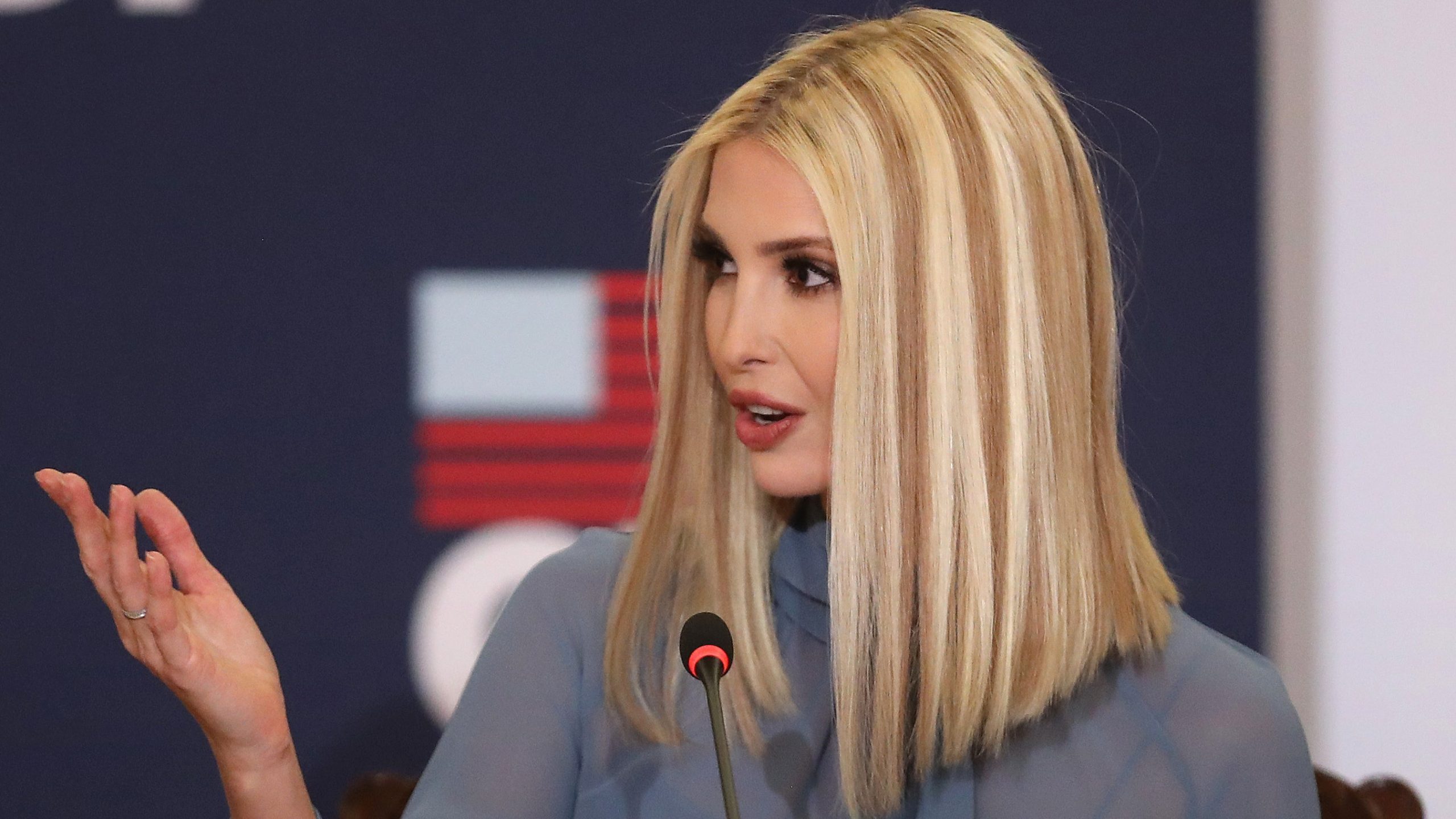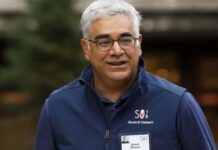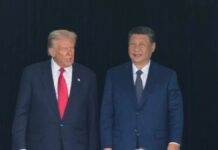
The Big Idea is a series that asks top lawmakers and figures to discuss their moonshot — what’s the one proposal, if politics and polls and even price tag were not an issue, they’d implement to change the country for the better?
Ivanka Trump, President Trump’s eldest daughter and senior adviser, wants the federal government – an employer of more than 2 million civilian workers – to rethink who they hire.
Trump, a co-chair of the American Workforce Policy Advisory Board, has urged the government to engage in hiring practices to “better recognize the talents and competencies of all Americans” it hires. Part of that is to prioritize job skills and talents over college degrees.
TRUMP SIGNS EXECUTIVE ORDER TO PRIORITIZE SKILLS-BASED HIRING
Last month, President Trump signed an executive order that redirected the federal government to replace “outdated degree-based hiring with skills-based hiring.” The president, upon signing the order, said his administration already valued merit but the federal government would no longer be narrowly focused on where an individual went to school, but rather the skills and talents they bring to the table.
The White House said it isn’t necessarily eliminating degree requirements but is urging that skillsets for jobs be prioritized.
Ivanka Trump faced criticism earlier this week for the launch of a related ad campaign targeting unemployed Americans called “Find Something New.” The title drew jeers on social media and accusations that the campaign glossed over the economic pain families are facing from the coronavirus pandemic.
The first daughter responded to critics on Twitter, saying, “This initiative is about challenging the idea the traditional 2 and 4 yr college is the only option to acquire the skills needed to secure a job.”
Trump’s efforts are focused on “modernizing federal hiring” and encouraging employers to consider the initiative and how it could help diversify and strengthen their workforce.
She discussed the initiative in detail, in written responses to questions from Fox News:
You’re calling on federal employers to weigh applicants’ skills over college degrees, and replacing degree-based hiring with skills-based hiring. Explain how that would work.
As the country’s largest employer we lead by example. We care about what you know, not where you learned it. The first step is reviewing position requirements to identify what the relevant knowledge, skills, competencies, and abilities are for the job. Some of these descriptions, known as “occupational classifications” haven’t been updated for more than 50 years.
The second step is matching these descriptions with what skills a job candidate has (or doesn’t have) when determining their likelihood of succeeding. Job candidates can demonstrate these skills through prior work experience, some other test or assessment, or their education history if it is relevant. Previously, job candidates with college degrees were presumed to be qualified regardless of their skills, and job candidates with the necessary skills were crowded out.
What is your goal in implementing this program?
We want to expand opportunity for the two-thirds of Americans, disproportionately lower-income and minorities, without college degrees whose skills and talents were overlooked—and we want to ensure that we are hiring the most qualified people to work on behalf of the American people.
How do you plan to engage and recruit individuals in underprivileged areas, or those who may not necessarily be able to afford a two or four-year college degree?
The purpose is to find the most dedicated and talented Americans to work in the federal government. By modernizing the recruitment and hiring process and focusing on skills, we believe we will have a broader reach to touch more communities and provide for a more diverse and inclusive workforce.
IVANKA TRUMP RIPS ‘CANCEL CULTURE’ AFTER SHE’S DROPPED AS COMMENCEMENT SPEAKER
What types of federal jobs would these individuals be eligible for?
The short answer is that it depends; people throughout the country have a wide range of experience and expertise. American employers, especially in the information technology industry, have led the way with skills-based hiring and we are following their example.
We understand that in IT classrooms, knowledge falls behind industry standards very quickly, and an individual with practical on-the-job experience is at “the tip of the spear.” We’ve already begun implementing more holistic candidate assessments for cybersecurity positions because of this.
What qualities and skills would the federal government be looking for from individuals in place of a college degree?
Like all employers, that still depends on the job. In many cases, it will require federal agencies to identify the specific skills required. For example, assessing candidates on their proficiency and knowledge of copyediting rather than holding a degree in English.
How does this fit into the bigger picture of getting millions of Americans back to work who lost their jobs during the coronavirus pandemic?
This effort recognizes that there exists an enormous number of skilled workers who have been disconnected from the workforce due to the pandemic. Many of the skills they’ve learned over their careers, including skills such as teamwork or leadership, are still relevant despite the pandemic and we, as representatives of the nation’s largest employer, are committed to recognizing those skills.
What about individuals who do have a college degree from an accredited college or university who have been unable to a breakthrough in the federal workforce? What do you say to those individuals?
First, this executive order does not waive education or licensing requirements in jobs that require them by law, such as doctors, nurses, or engineers. However, we should encourage everyone to communicate what they know and what they can do to any employer.
We’ve been championing the development of learning and employment records that will blockchain technology to help job candidates communicate both their employment and education history—including their skills—to potential employers in a safe, secure and verifiable way.
What do you say to individuals who have a college degree who are unemployed due to the pandemic or due to other circumstances? Will this program help them?
We understand the importance of a return to economic prosperity. Before the pandemic, there were more job openings than job seekers, and a return to economic growth will benefit all Americans.
I know the efforts involve the private sector and high-profile companies. Are those companies committed to extending opportunities to those without a college degree? And if so, what does that mean for applicants who do have a college degree?
The administration has looked to those in the private sector, such as IBM and Apple when implementing skills-based hiring and we encourage all employers to examine how they make personnel decisions.
At the last meeting of the American Workforce Policy Advisory Board, we released a set of best practices to modernize recruitment, hiring, and training practices to help lead the way. We recognize that skills are the currency of the future job market and believe this will help expand opportunities for all Americans.











